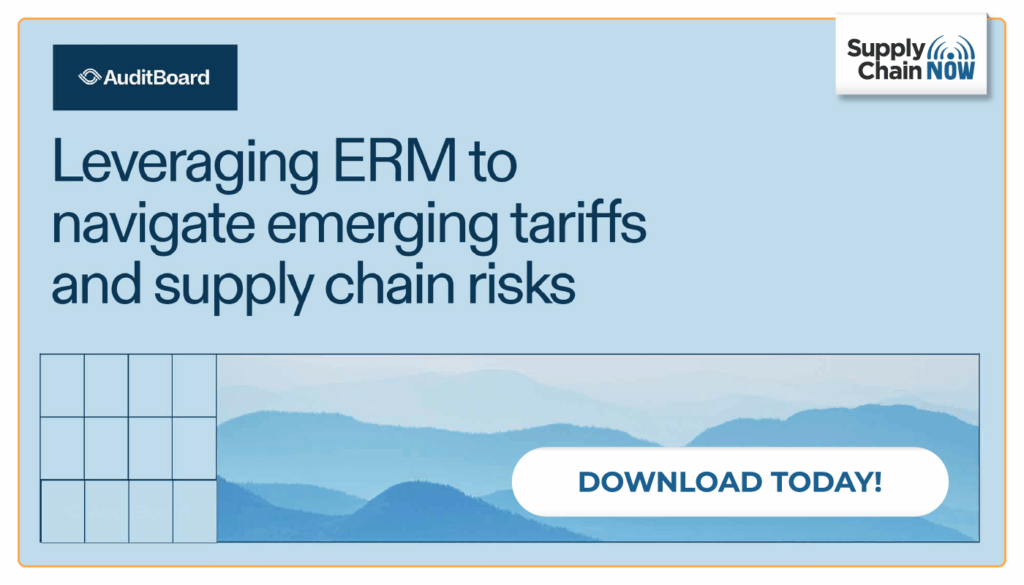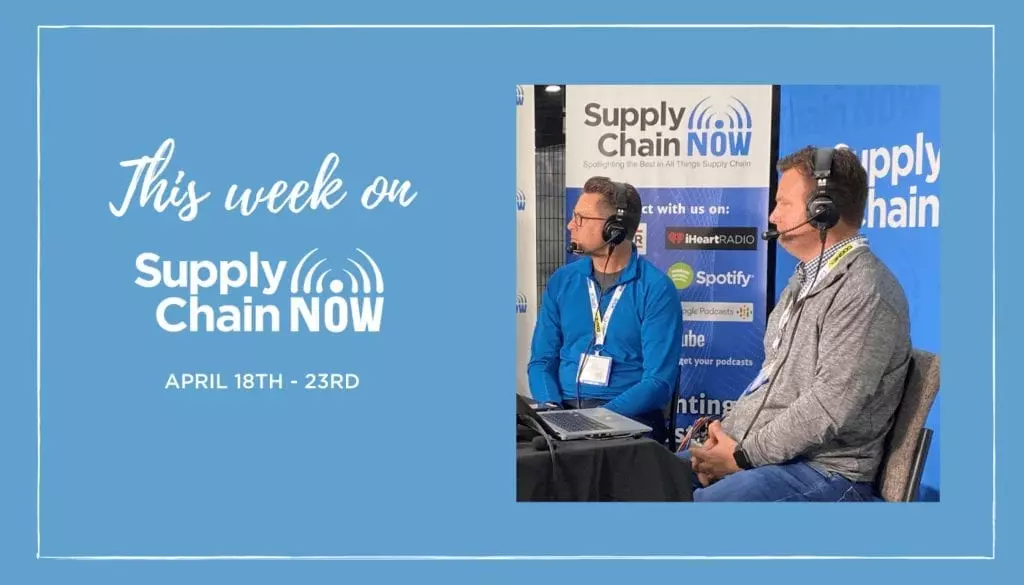
More

October 3, 2025
Leveraging ERM to navigate emerging tariffs and supply chain risks
Leveraging ERM to navigate emerging tariffs and supply chain risks With recent tariff hikes and geopolitical shifts, supply chain risks are more urgent than ever. 63% of businesses reported higher-than-expected supply chain losses despite increased risk management efforts in recent years. Leveraging ERM to navigate emerging tariffs and supply chain risks explores the distinct challenges of a stressed global market and shows how ERM can enhance efforts in identifying, escalating, and responding to emerging supply chain threats. Key areas explored in the guide: Supply chain risks affected by increased tariffs. Why engaging ERM to address supply chain risks is crucial. 8 proactive strategies for addressing emerging supply chain risks. Ready to start engaging ERM to respond to emerging supply chain risks with agility and speed? Download the free guide now

April 23, 2021
This Week In Supply Chain Now: April 18th – 23rd
Listen up! Catch up on all the latest episodes, interviews, conversations, and livestreams from this week right here. On Monday, we released 3 new episodes! On Supply Chain Now, hosts Scott Luton and Ben Harris welcomed Colton Griffin, CEO of Flourish Software, to talk about how the supply chain for cannabis operates and how it could influence the modern supply chain. On This Week in Business History, host Scott W. Luton dives into 10 things that you may not know about the Suez Canal, a modern engineering marvel that has been the subject of global fascination recently. On Supply Chain Now en Espanol, hosts Enrique and Jose Miguel welcome Ignacio Alcalde with TW Logistica to the podcast. On Tuesday, we released 2 new episodes. On this episode of TEKTOK, powered by Supply Chain Now, hosts Karin Bursa and Scott Luton welcome Transplace CEO Frank McGuigan to the podcast to discuss how disruptions drive supply chain innovations and advancements. On TECHquila Sunrise, host Greg White sat down with Peter Stangeland, Chief Commercial Officer of DB Schenker, to talk about the exciting progress his teams have made in clearing the path to sustainability through innovative forms of transportation and his advice for…
